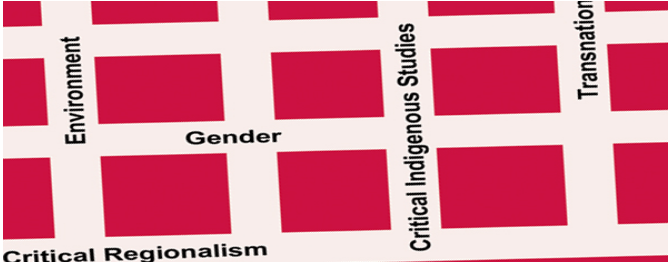
American Studies ETDs
Publication Date
1-31-2013
Abstract
Often placed at the center of psychotherapeutic training rhetoric are the notions of cultural sophistication, competency, and responsiveness; however, these notions are often pushed to the margins of practice. This qualitative and interdisciplinary community project explores an important strand of psychosocial development that has always already existed, but had yet to be named. Psychosocial consciousness develops, through time, as a natural human response to our day-to-day experiences and encounters. These experiences and encounters form, reinforce, and perpetuate systems of understanding of self and others which profoundly impact our experience in the world. The exploration of the psychosocial development of a specific cohort of mujeres from the USA-Mexico border is a means toward the expansion of the understanding of psychosocial development of an underrepresented strand of mujeres and leads to the imagining of a culturally relevant and responsive intervention. This dissertation is designed to engage with the ongoing exploration of theories of identity, culture, and community; this as a means of contributing to border and borderland discourse in multiple fields of study, research, pedagogy, and praxis. This project braids together three strands of discourse. First, the voices that emerge from a process of a historicized and sequential connection of literature drawn selectively from multiple fields of study in order to build the foundation, shape the framework, and contextualize the notion of borderpsychosocial development. Second, my cuento, reflexive stories that emerged from my personal, professional, and academic experiences. Third, the cuentos of las seis mujeres del valle who provide a glimpse into their experiences of living on the border. Interviewed were six mujeres of Mexican heritage between ages fifty and sixty-five who live in the Lower Rio Grande Valley of South Texas near the USA-Mexico border. Written and video recording methods are used to gather contextual- and cuento-data about their specific psychosocial experience with religion, traditional medicine, language, and education from childhood through adulthood that constitutes their psychosocial development on the border. Selected findings provide a glimpse into border-based experiences, the dilemmas that result, demonstrate the value of centering the marginalized experience and theorizing of psychosocial experience, and imagine a clinical intervention.
Language
English
Keywords
Social Work, Psychology, Psychosocial, Border, Borderlands, Chicana/o, Development
Document Type
Dissertation
Degree Name
American Studies
Level of Degree
Doctoral
Department Name
American Studies
First Committee Member (Chair)
A. Gabriel Meléndez
Second Committee Member
Bárbara O. Reyes
Third Committee Member
Rebecca Schreiber
Fourth Committee Member
Michael L. Trujillo
Recommended Citation
Munguía Wellman, María Gloria. "The Borderpsychosocial Development Project: Is There a Specific Psychosocial Consciousness that Frames Development for Border Women?." (2013). https://digitalrepository.unm.edu/amst_etds/32
